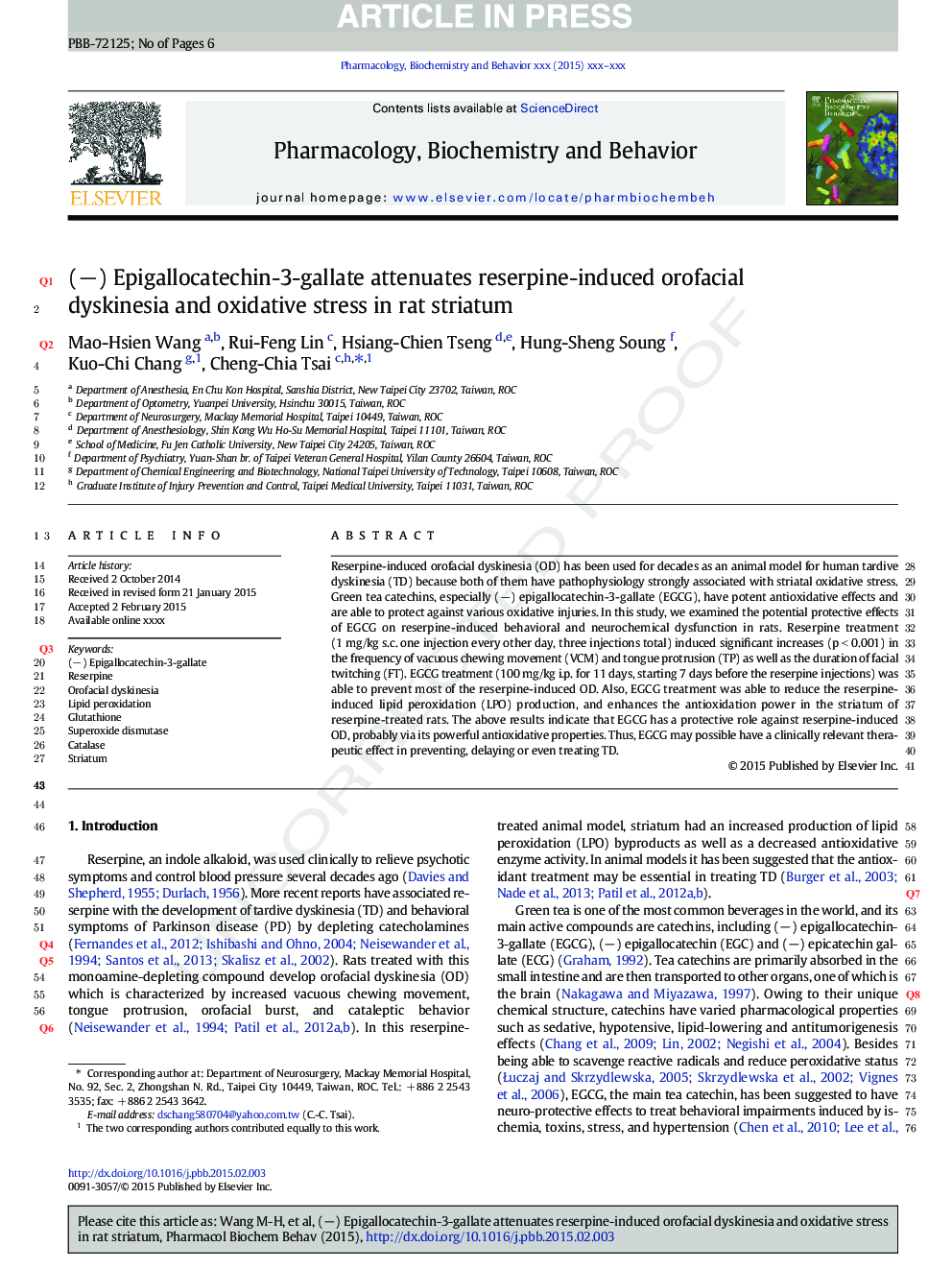| Article ID | Journal | Published Year | Pages | File Type |
|---|---|---|---|---|
| 8350675 | Pharmacology Biochemistry and Behavior | 2015 | 6 Pages |
Abstract
Reserpine-induced orofacial dyskinesia (OD) has been used for decades as an animal model for human tardive dyskinesia (TD) because both of them have pathophysiology strongly associated with striatal oxidative stress. Green tea catechins, especially (â) epigallocatechin-3-gallate (EGCG), have potent antioxidative effects and are able to protect against various oxidative injuries. In this study, we examined the potential protective effects of EGCG on reserpine-induced behavioral and neurochemical dysfunction in rats. Reserpine treatment (1 mg/kg s.c. one injection every other day, three injections total) induced significant increases (p < 0.001) in the frequency of vacuous chewing movement (VCM) and tongue protrusion (TP) as well as the duration of facial twitching (FT). EGCG treatment (100 mg/kg i.p. for 11 days, starting 7 days before the reserpine injections) was able to prevent most of the reserpine-induced OD. Also, EGCG treatment was able to reduce the reserpine-induced lipid peroxidation (LPO) production, and enhances the antioxidation power in the striatum of reserpine-treated rats. The above results indicate that EGCG has a protective role against reserpine-induced OD, probably via its powerful antioxidative properties. Thus, EGCG may possible have a clinically relevant therapeutic effect in preventing, delaying or even treating TD.
Keywords
Related Topics
Life Sciences
Biochemistry, Genetics and Molecular Biology
Biochemistry
Authors
Mao-Hsien Wang, Rui-Feng Lin, Hsiang-Chien Tseng, Hung-Sheng Soung, Kuo-Chi Chang, Cheng-Chia Tsai,
